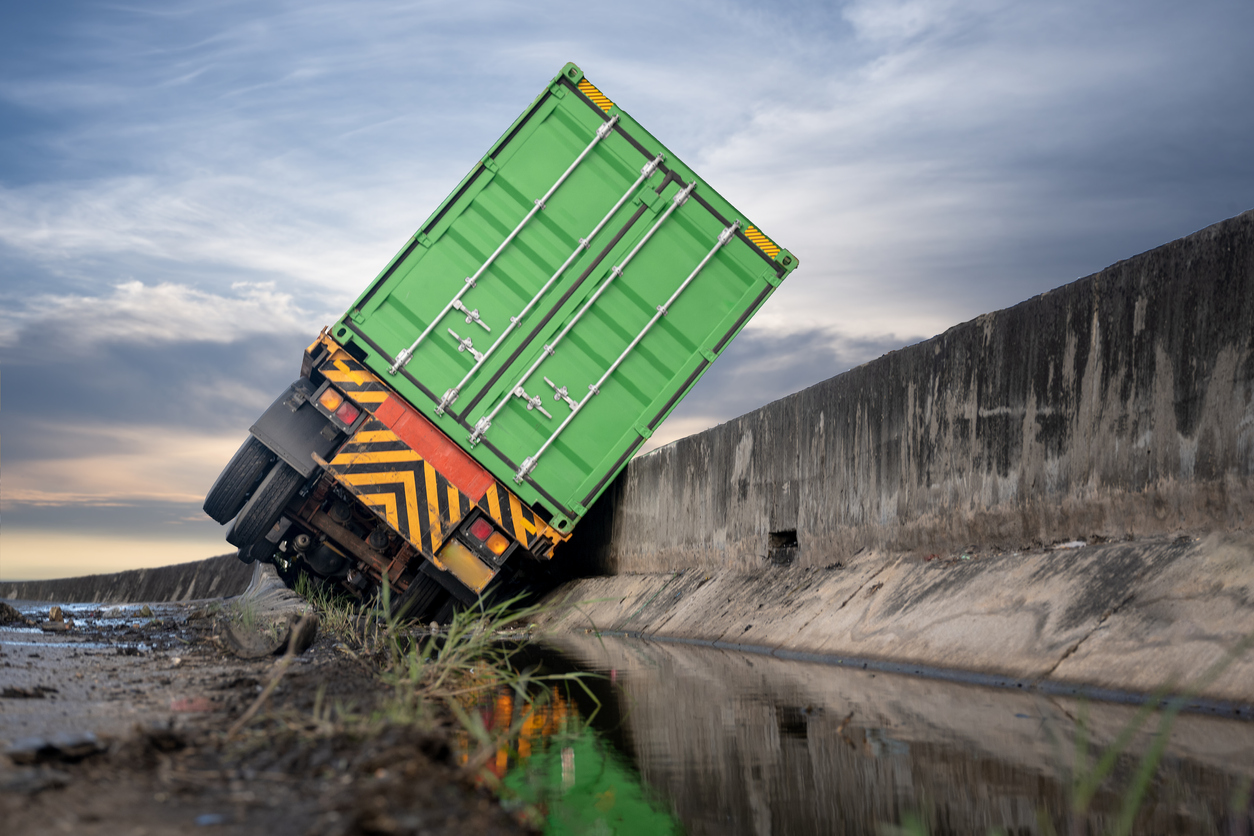
Interstate vs. intrastate trucking describes two different types of transportation. In this blog, our St. Louis truck accident lawyers explain why understanding the difference matters, since truck drivers, fleet owners, and logistics workers must follow different laws and regulations depending on the type of travel.
Both types of trucking move goods, but they differ in where they travel. One type stays within the same state, while the other crosses state lines.
What Is Interstate Trucking?
Interstate trucking moves goods between two or more states. For example, a truck traveling from Missouri to Illinois is considered interstate trucking. The Federal Motor Carrier Safety Administration (FMCSA) primarily regulates this type of transportation.
Other key points about interstate trucking include:
- Trucks traveling between states must follow FMCSA rules, which include limits on hours of service, weight, and safety inspections.
- Interstate truck drivers need a Commercial Driver’s License (CDL). They must also pass federal requirements, like background checks and medical exams.
- Interstate trucks must meet strict safety inspections. They follow rules for vehicle maintenance and equipment.
St. Louis is located at the intersection of several key highways, including I-44, I-55, and I-70. This location attracts a lot of interstate trucking traffic, which means trucks regularly cross state lines as part of their delivery routes.
What Is Intrastate Trucking?
Intrastate trucking means moving goods within one state. A trucking operation that only runs in Missouri is called intrastate trucking. It follows state rules but typically doesn’t have to follow federal regulations for interstate trucking.
Other key points about intrastate trucking include:
- The Missouri Department of Transportation (MoDOT) manages intrastate trucking in the state. State rules may match some federal ones, but they pay more attention to local needs and specific state laws.
- A CDL is still needed for intrastate trucking, but Missouri’s other rules for intrastate truck drivers may be less stringent than those applicable to interstate truck drivers.
- States usually handle truck inspections and safety checks for intrastate operations.
Intrastate trucking is common in Missouri, especially in places like St. Louis. Local deliveries happen between cities, ports, or distribution centers. These deliveries do not cross state lines. Drivers in these operations might face less regulation than those crossing state lines, but they still must follow state laws.
Key Differences Between Interstate and Intrastate Trucking
Interstate and intrastate trucking differ mainly in routes and regulations. These distinctions influence the legal requirements for licensing, insurance, and safety compliance.
Regulatory Authority
The FMCSA and other federal agencies regulate interstate trucking.
The Missouri Department of Transportation (MoDOT) and other state government entities regulate intrastate trucking.
Licensing Requirements
Interstate trucking requires a CDL and adherence to federal qualifications for drivers.
You also need a CDL for intrastate trucking, but state rules may be easier to comply with than federal ones.
Safety Standards
Interstate trucking companies and their employees must follow strict federal safety rules, including vehicle inspections, maintenance, and driver qualifications.
Safety rules for intrastate trucking are mainly issued by the state, so they might not be as detailed or complex.
Insurance
Federal law requires higher levels of insurance coverage for interstate trucking operations.
State authorities set insurance rules for intrastate trucking. This can lead to lower coverage requirements for intrastate trucking operations than what an interstate trucking company might be required to have.
Contact a St. Louis Truck Accident Lawyer at Eason Car Accident and Personal Injury Lawyers for a Free Consultation
St. Louis is a key hub for freight transport. Both interstate and intrastate trucking are standard there. The area is close to major interstates and railroads. So, it has a lot of interstate trucking traffic. Local operations, especially in the metro area, depend on intrastate trucking to move goods within Missouri.
Both types of trucking need strict safety and licensing standards. Companies in this field must know the rules and regulations, and truck drivers in the area must know the differences between these two types of trucking. This is key for road safety and compliance.
If you get into a wreck with a semi-truck, call our St. Louis truck accident lawyers at Eason Car Accident and Personal Injury Lawyers to set up a free consultation. You could be entitled to compensation for your injuries.
For more information, please contact Eason Car Accident and Personal Injury Lawyers to schedule a free consultation with a personal injury lawyer in St. Louis, MO, today. We have two convenient locations in Missouri, including St. Louis and Richmond Heights.
We proudly serve St. Louis County and its surrounding areas.
Eason Car Accident and Personal Injury Lawyers – St. Louis Office
10 S Broadway #560
St. Louis, MO 63102
(314) 932-1066
Eason Car Accident and Personal Injury Lawyers – Richmond Heights Office
1034 S Brentwood Blvd Penthouse 1-C
Richmond Heights, MO 63117
(314) 463-4173
